Lacipo is a Roman town near Casares in Malaga province, Andalucia. Built in the 2nd century BC, once an important Roman town now deserted
By Nick Nutter | Updated 29 Aug 2022 | Málaga | Places To Go |
Login to add to YOUR Favourites or Read Later
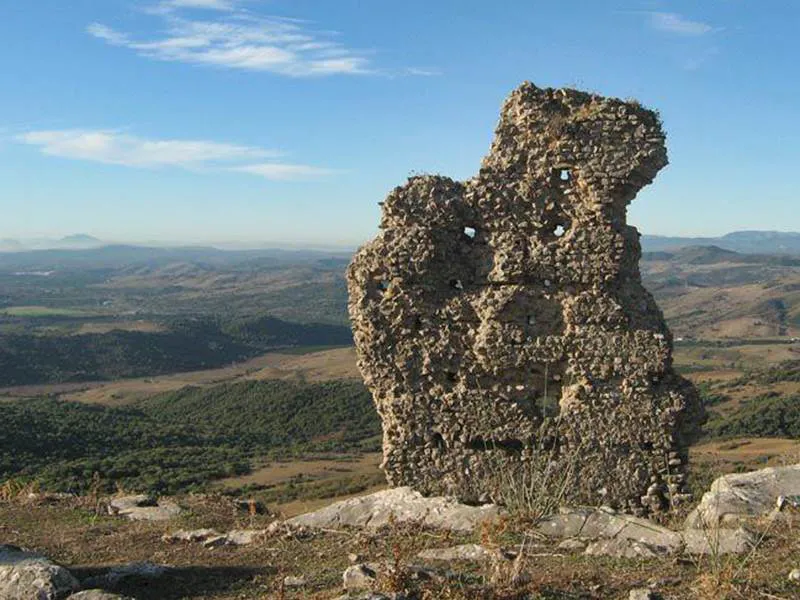
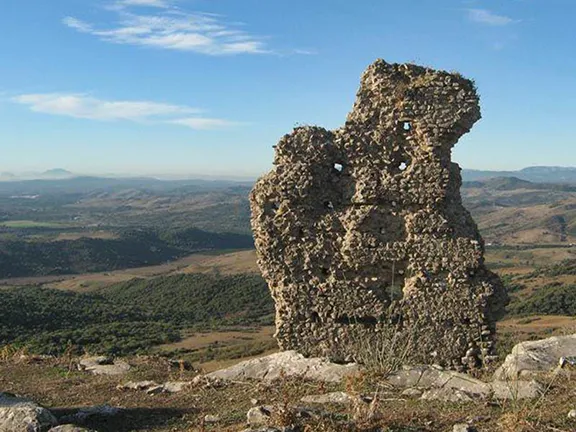
Lacipo - looking towards Oba
Vehicles hurtle down the newly surfaced A 377 from Gaucin to Manilva and the coast, their occupants unaware that they are passing within a kilometre of Lacipo, what was one of the more important Roman towns in the province. Excavated in the mid 1970s several artefacts were found that were whisked off to the Municipal Museum at Malaga. Those finds have been hidden from the public eye for the last fifteen years whilst the museum underwent renovation. With work completed in late 2016 those items can now be viewed. As can Lacipo if you are prepared to clamber up a small hill.
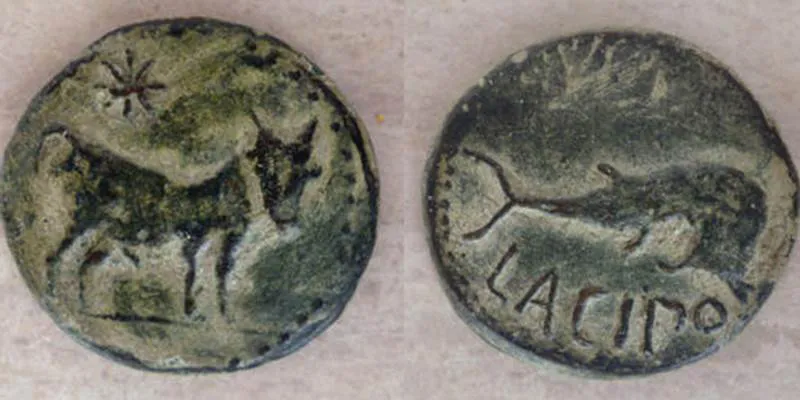
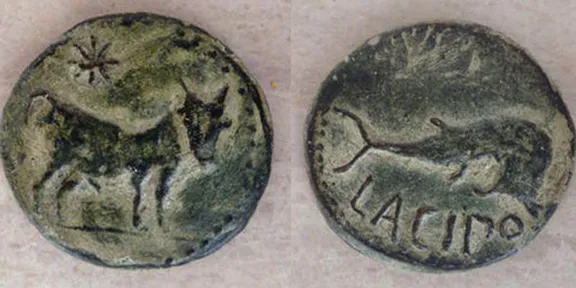
Roman coins minted at Lacipo
Lacipo is situated on a hill overlooking, to the west, the valleys of the Genal and Guadiaro rivers. It is a strategic spot between the Roman settlement at Carteia on the coast, Oba (Jimena de la Frontera) visible from Lacipo to the west, and the mountain villages of Ronda. With an economy based on the production of olive oil and its military presence, Lacipo became important enough during the 2nd century BC to mint its own coins. It reached its apogee in the days of Caesar Augustus during the 1st century BC and it is from this period that the artefacts now on display at the museum in Malaga originate.
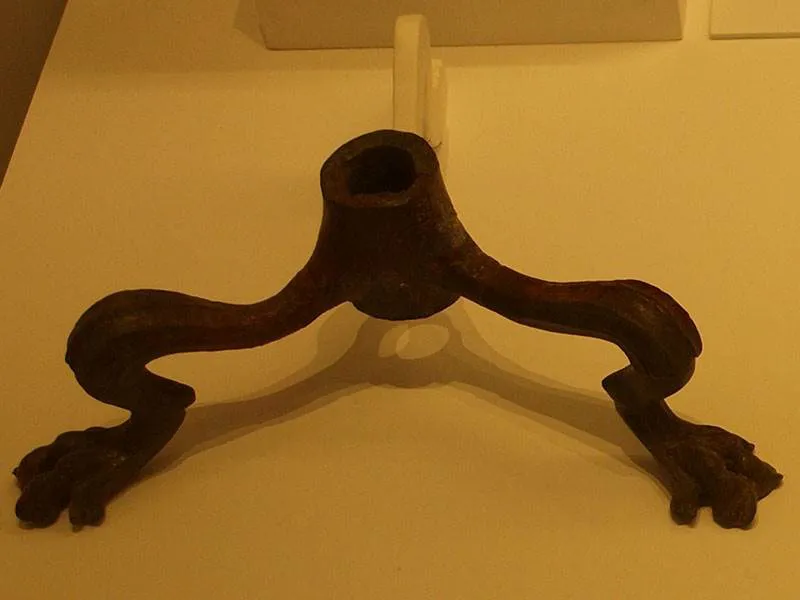
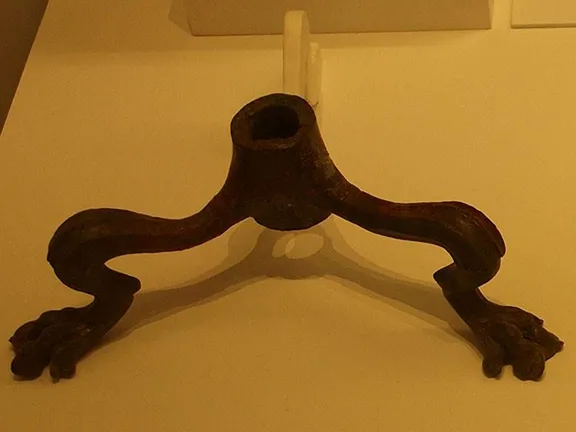
A 1st century BC bronze candelabra (Malaga Archaeological Museum)
The finds are remarkable for their completeness rather than their value. The first is the foot of a candelabra, a nice example of the bronze workers art. With it is a marble mortar that would not disgrace a kitchen today. Finally we have a pair of bronze Italic jugs, one with a loop handle and lip that would have been filled with wine to grace a Roman table.
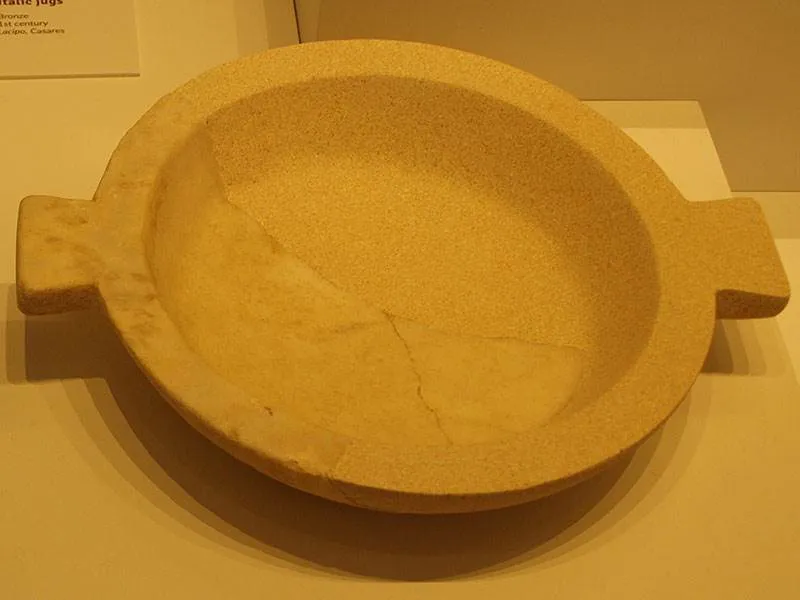
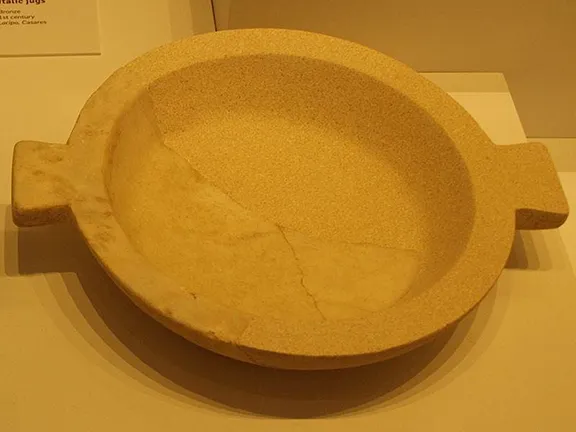
A 1st century BC marble mortar (Malaga Archaeological Museum)
Of Lacipo itself, little is visible. A section of the town wall about 10 metres high, still stands sentinel on the hill. Two small towers protected the wall on the north of the town. The foundations of several buildings, some identified as part of an altar dedicated to Fortuna Augusta can be seen as can part of an aqueduct that fed water to the town from the towering bulk of Crestellina a couple of kilometres north east of the town.
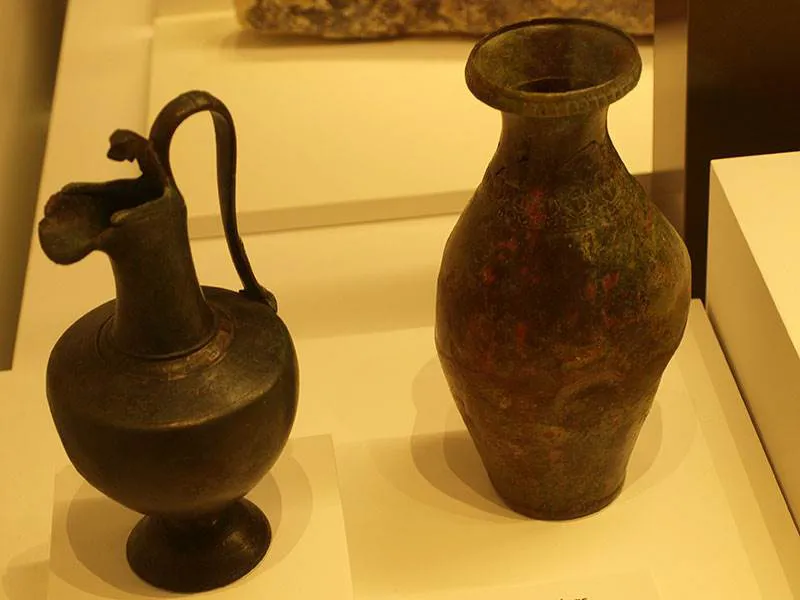
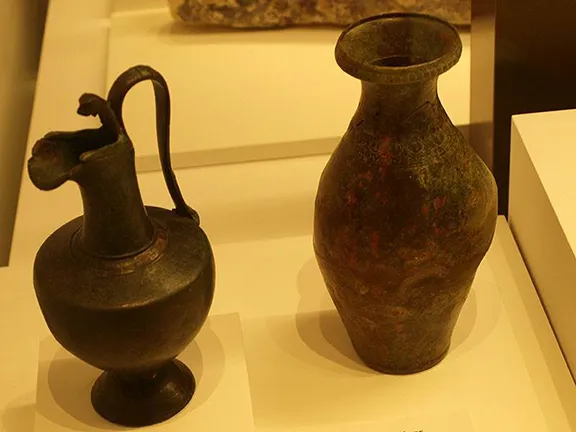
A pair of 1st century BC bronze Italic jugs (Malaga Archaeological Museum)
Lacipo is mentioned in texts by two contemporaneous authors, Pliny the Elder and a man with a local connection, Pomponius Mela.
Pomponius Mela (15 AD – 45 AD) was the earliest Roman geographer. Lacipo receives its mention in his Geography de Situ Orbis, his description of the world, written in 43 AD. Pomponius was born in Julia Traducta, modern day Algeciras, just down the (Roman) road.
When travelling towards Gaucin on the A377 walk down a track on the left 200 metres after the junction with the Casares road. Continue for one kilometre, you should see a pond on your right. Turn left and ascend the defile ahead for about 200 metres until you reach the overgrown saddle where you turn sharp right and clamber up the final hundred metres or so.